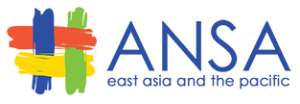ANSA-EAP has delivered on its 2009 Objectives as set forth in the Grant Agreement between the Ateneo de Manila University-School of Government and the International Bank for Reconstruction and Development (The Bank) to support the second year its operations.
The Grant Agreement has four main objectives: (1) Operationalization of ANSA-EAP; (2) Country and multi-country social accountability initiatives and programs; (3) Capacity building through regional training programs; integration of social accountability with higher education programs; and country-to-country learning exchanges; and (4) Research and Knowledge Management activities at country and regional levels.
Based on these objectives, the ANSA-EAP Secretariat planned its strategy and activities which served to guide the 2009 Deliverables, categorized into the following components: (1) Governance and Management; (2) Networking; (3) Communication; (4) Research; (5) Capacity Building (Training and Grants); and, (6) Resource Mobilization.
Operationalizaton of ANSA-EAP
The second year of ANSA-EAP accomplished an effective transition from the previous year’s organizational setting up phase to full operational phase. Assessment and planning were undertaken by the Secretariat/Operations Team, which generated an internal management mechanism to track the progress of component activity plans and individual performance contracts.
A six-member Executive Committee guided the Secretariat and sustained its support through three regular meetings, where it reviewed and refined ANSA-EAP’s policies and directions.
Country and Multi-Country Social Accountability Initiatives and Programs
An in-country network infrastructure, i.e. Country Partner with Network Fellow, was tested and put in place in the four priority countries, namely the Philippines, Cambodia, Indonesia and Mongolia. Complementing in-country operations were thematic sub-networks for procurement, extractive industry, and youth. These were formed at the country and inter-country levels. Also, communication and collaboration lines were established with various regional groups, including Bank-affiliated ones and the ANSAs in Africa and South Asia.
Country and multi-country initiatives and programs were introduced to start the process of mainstreaming social accountability. A regional youth program was launched successfully in partnership with the World Bank Institute (WBI) and the WB offices in the four priority countries. A Social Accountability (SAc) 101 Module was also used to spread the unique framing of the concept and practice of social accountability to various partners in the priority countries.
A highlight event of this year was the Young Citizens’ Cyber Conference on Social Accountability (YC3) which introduced social accountability to the youth and encouraged their participation in social accountability initiatives. It simultaneously connected youths in Cambodia, Indonesia, Mongolia, Thailand, and the Philippines. During the YC3-EAP, more than 100 young citizens from the different countries and belonging to different youth organizations were introduced to social accountability and different youth-led social accountability initiatives. The impact of this is that the YC3 has led to the
convening of a core group working to form a regional youth network on social accountability.
Capacity Building through Regional Training Programs
In deepening the experience of the use of social accountability, grants and technical assistance were strategically allocated for popularization (e.g., through a radio program in Cambodia), testing of innovative methods with an established membership-based organization (e.g., scouts organization), and partnering with strong advocates (e.g., Revenue Watch Institute) and credible institutions (e.g., UNDP Pacific).
Efforts to engage development partners were done through meetings and roundtable discussions. Proposals championing social accountability were also sent out to various donors. One proposal was approved by the European Commission Grant Facility to be implemented in the Philippines in 2010.
Oxfam East Asia is also putting in funds on a regional research project to be carried out by ANSA-EAP.
The project has made an evident mark for ANSA-EAP as a capacity building provider in the area of good governance and social accountability. The Social Accountability School (SAS) in Cambodia and the Mentoring, Coaching, Exposure Visit to the Philippines was completed. The WBI’s Core Learning Program (CLP) Module was likewise rolled out to the five country offices of Oxfam East Asia. Revenue Watch International (RWI) and the Association of Schools of Public Administration in the Philippines (ASPAP) are set to adopt the module.
The conduct of “Open Doors 2009: A Regional Forum on Procurement Monitoring as a Social Accountability Tool in Advancing Citizens’ Engagement with Government” in Hong Kong in November 9-11 was the crowning achievement of the second year of ANSA-EAP. It successfully convened 76 participants from various citizen groups, governments, and donor institutions. The plans produced by the forum are now taking shape in follow-up meetings in the priority countries.
Research and Knowledge Management
Knowledge materials were produced and consolidated for use in training and public dissemination. These included scoping studies in the Philippines and Cambodia and thematic studies on extractive industries and procurement. Also ready for public consumption are the G-Watch Guidebook, the Scouts Module on Social Accountability, narrative and video documentations of initiatives and programs, and various modules used in the Social Accountability Schools. These are all stored in a database and available online.
In sum, the four main objectives set out in the Grant Agreement were significantly met. The Secretariat completed promised results and deliverables. It has achieved key results especially in the birthing of a network model with concrete learning and research products and services that are being communicated and offered to citizen groups, governments, and other interested stakeholders.
2009 was a busy year for ANSA-EAP in not only consolidating its partners and strengthening its networks, but also in providing trainings and capacity building workshops while undertaking research and knowledge management activities. It was a year in which achievements were marked through coordination, collaboration and numerous follow-ups, as well as technical design and implementation of its initiatives, none of which would have been possible without the assistance of donors, partners, fellows, networks and a solidified Secretariat.
Finally, ANSA-EAP has a number of lessons learned which would steer the organization during the next year’s planning and program design and implementation, building on its successes – the network model and the learning and research products – and strengthening its partnerships, while still drawing up new and innovative ways in which social accountability could be mainstreamed in the region.
